
If you're interested in DIY solar street lights, you might want to check out this article.
You can use the FENGYU power bank's polymer battery. By removing the power bank's case, you can directly convert it into a solar street light. Paired with a second-hand 6W 6V solar panel from a shared bicycle, it works perfectly. Connecting three panels in parallel ensures that even several consecutive days of cloudy or rainy weather won't be a problem.
The FENGYU power bank weighs around 194 grams, as shown in the image below:
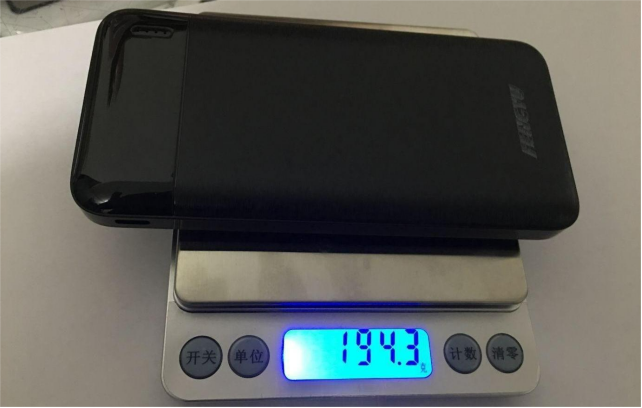
Disassemble the power bank
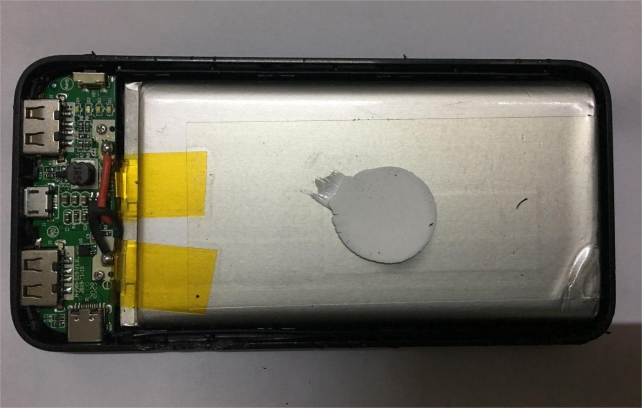
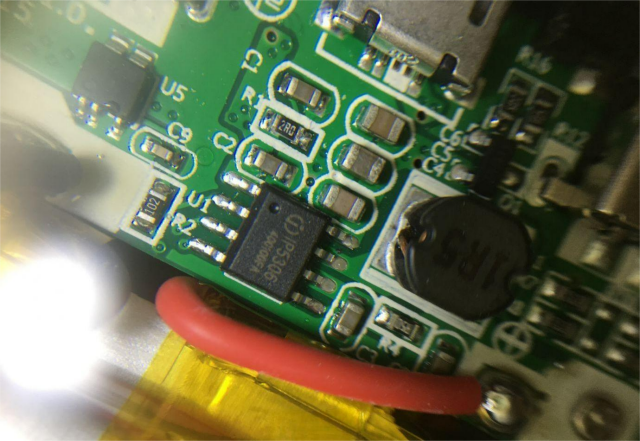
Next, you can use the YX8184 chip to create a solar PCB board. It's simple and practical. The system automatically charges during the day and lights up at night. It also has overcharge and over-discharge protection features, along with a timer, full current, and adjustable current reduction functions. Although small, the chip is quite versatile. You can set it to provide 175mA of current for the LED bulbs for 6 hours, and after 6 hours, the current automatically reduces by half (around 87mA). See the image below for details.
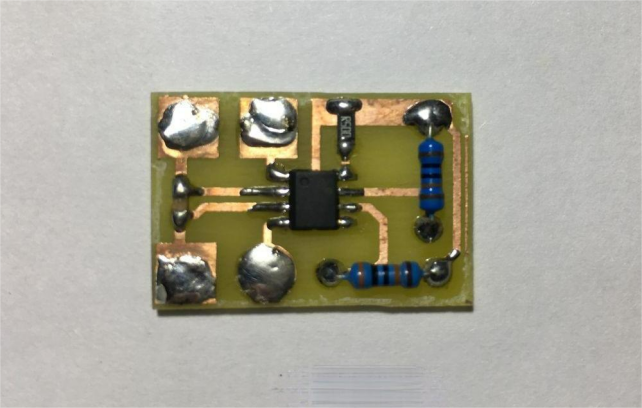
About the YX8184 Chip:
The YX8184 is a solar LED driver control chip designed for solar-powered products using lithium-ion batteries.
It integrates an LED constant current driver circuit and a lithium-ion battery charging protection circuit. The controller features high conversion efficiency, up to 95%, which reduces the power requirement of the solar panel. It also includes functions like over-discharge locking, adjustable output current, light control anti-jitter, constant current timing, LED current reduction (dimming), and more. The current reduction is adjustable, and both the reduction time and current are adjustable to maintain a constant current effect before and after the dimming.
The YX8184 comes in eco-friendly SOP8 and DIP8 packages, and requires only a minimum of three external components, reducing PCB layout space.
It operates in temperatures ranging from -40°C to +85°C.
Features of the YX8184 Chip:
· Input voltage range: 2.7V to 4.2V
· Efficiency up to 95%
· Overcharge and over-discharge protection
· Battery reverse polarity protection
· Low enable voltage
· Enable feature with Schmitt characteristics for stable transition from on to off
· Maximum solar charging current: 600mA
· LED current adjustable via resistors
· Constant current timing (current reduction) for energy-saving
· Available in SOP8 and DIP8 packages
Typical Applications of the YX8184 Chip:
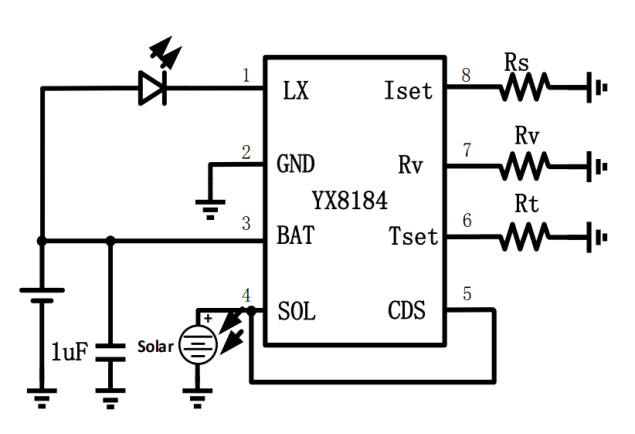
Reference values for the timing with Rt:

Note:
· During the timer period, the LED operates at the current set by RS and stays constant.
· The timing error range is within ±10%.
Reference values for the current reduction range with RV:

Note:
· Current reduction: This refers to the percentage of the initial current (equivalent to dimming) after the timer ends.
· If RV = 0, after the constant current timer ends, the LED will be dimly lit but not completely off. There will be a 1~3mV voltage on RS.
· Quick test for current reduction after the timer: Apply a reverse 0.6~0.9V voltage to the positive and negative terminals of the solar panel, and the LED will immediately switch to the reduced current value.
Reference values for RS and the LED's initial current:

Place the YX8184 PCB inside the power bank
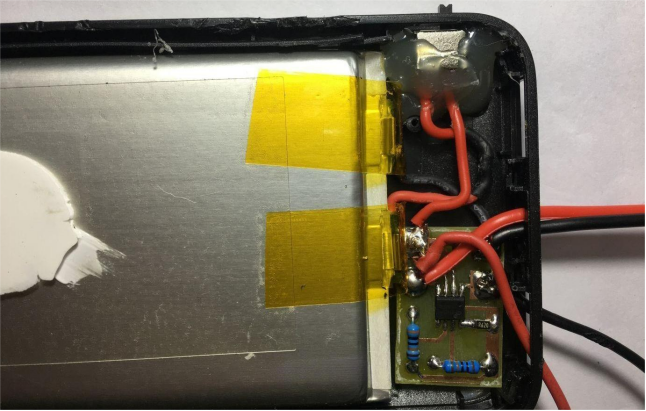
After testing, it works normally.
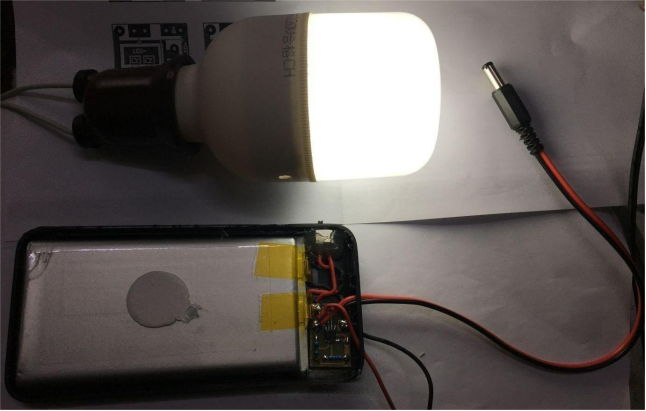
Place the light on the balcony; it's very bright, and for a streetlight, the brightness is quite good—about the same as a 7W LED bulb. Of course, the brightness can be adjusted by changing the resistor's value to modify the current output to the LED.

Complete.




